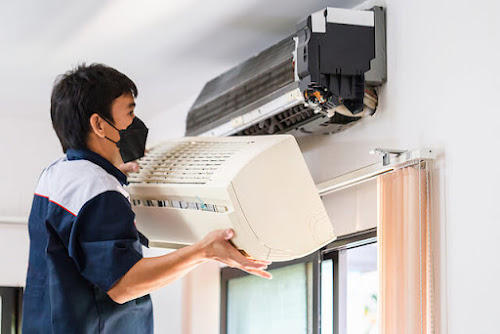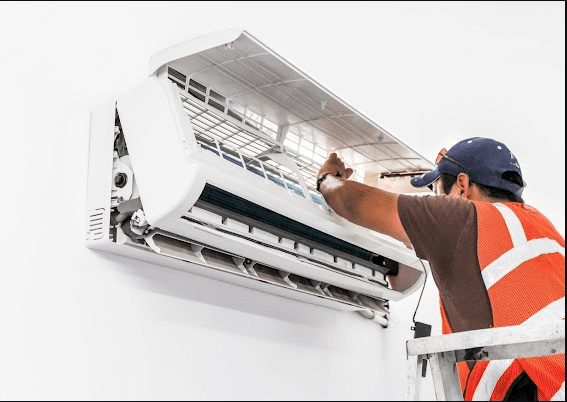Is Your Air Conditioning System Prepared for Summer?
With the scorching heat of summer just around the corner,
it's essential to ensure that your air conditioning system is in top shape to
keep you cool and comfortable. The last thing you want is to find yourself
sweating and sweltering in the midst of a heatwave because your AC system
couldn't handle the demand. In this comprehensive guide, we'll walk you through
the necessary steps to ensure that your air conditioning system is
well-prepared for the summer season. So, let's dive right in and make sure your
summer is as refreshing as a dip in the pool!
Is Your Air
Conditioning System Prepared for Summer? A Must-Ask Question
The first step towards a comfortably cool summer is to
assess the readiness of your air conditioning system. Here are some vital
aspects to consider:
1. Professional
Inspection: Have You Scheduled One Yet?
Before the temperature starts to soar, it's crucial to
schedule a professional inspection for your air conditioning service in Melbourne. A certified technician will
thoroughly examine the components, identify any potential issues, and perform
necessary maintenance tasks to ensure optimal performance. Remember, prevention
is always better than a breakdown in the middle of summer!
2. Filter Check: Are
Your Filters Clean and Clear?
Clean air filters are essential for the efficient operation
of your air conditioning system. Over time, dust, dirt, and debris accumulate
in the filters, restricting airflow and decreasing cooling efficiency. Take a
moment to inspect your filters and clean or replace them as necessary. Doing so
will improve indoor air quality and maximize the lifespan of your AC unit.
3. Thermostat
Calibration: Is It Time to Fine-Tune?
A properly calibrated thermostat is crucial for maintaining
a comfortable indoor temperature while optimizing energy consumption. Ensure
that your thermostat is functioning accurately by checking its settings and
recalibrating if necessary. This will help avoid temperature discrepancies and
excessive energy bills during the summer months.
4. Ductwork
Inspection: Any Leaks to Worry About?
Leaky ductwork can lead to significant energy wastage and
reduced cooling efficiency. Check for any visible leaks or signs of damage in
your ductwork and promptly seal or repair them. Properly sealed ducts will
ensure that cool air reaches every corner of your home, keeping you comfortable
without putting a strain on your AC system.
5. Condenser and
Evaporator Coil Cleaning: Are They Free from Dirt?
The condenser and evaporator coils in your air conditioning
system play a crucial role in the cooling process. Over time, these coils
accumulate dirt and grime, hindering their efficiency. Ensure that you clean
them thoroughly before the summer season begins. Clearing away debris will help
your AC system operate at its best and provide optimal cooling.
FAQs: Your Burning
Questions, Answered!
1. How often should I change my air filters?
Air filters should ideally be changed every one to three
months, depending on the level of usage and the presence of pets or allergies
in your household. Regular filter maintenance ensures better air quality and
enhances the overall efficiency of your air conditioning system.
2. Can I clean my air filters instead of replacing them?
Yes, you can clean reusable air filters. However, disposable
filters should be replaced rather than cleaned. Consult your AC system's user
manual or seek professional advice on the specific type of filter you have.
3. What temperature should I set my thermostat to during summer?
A recommended temperature range for comfort and energy
efficiency during the summer months is between 72 and 78 degrees Fahrenheit
(22-26 degrees Celsius). Adjust the temperature based on your personal
preferences, but keep in mind that every degree lower increases energy
consumption.


Comments
Post a Comment